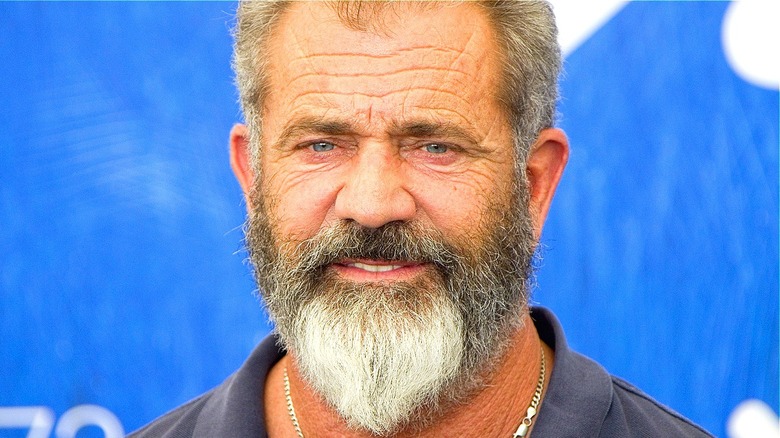
Judge rules that Mel Gibson can testify in the Harvey Weinstein trial
The judge ruled that Gibson can testify in support of his masseuse and friend, who will be known as Jane Doe #3 at the trial.
Mel Gibson can testify about what he learned from one of Harvey Weinstein’s accusers, a judge determined Friday in the disgraced movie mogul’s rape and sexual assault trial.
The 66-year-old actor and director were one of the numerous witnesses whose identities were revealed in Los Angeles Superior Court and by far the most well-known. The court and attorneys had taken a break from jury selection to consider motions on what evidence will be admitted at the trial and who will be allowed to testify. The witness list for the trial is confidential.
Gibson can testify in support of his masseuse and friend, who will be identified as Jane Doe #3 at the trial, according to Judge Lisa B. Lench. Weinstein is accused of sexual battery through constraint against the woman, one of 11 rape and sexual assault counts in the trial against the 70-year-old.

Prosecutors claimed that after receiving a massage from the lady at a Beverly Hills hotel in May 2010, a nude Weinstein followed her into the bathroom and masturbated. Weinstein has pled not guilty and has denied any inappropriate sexual behaviour.
Weinstein’s counsel argued against letting Gibson speak, claiming that what he learned from the lady while having a massage from her did not constitute a “new complaint” by the woman under the statute, which would allow Gibson to testify. Under California law, a “fresh complaint” authorizes the introduction of evidence of sexual assault or similar offence if the victim reported it to someone else freely and very soon after it occurred.
Prosecutors claimed that when Gibson mentioned Weinstein’s name by chance, the woman had a traumatic response and Gibson understood from her that she had been sexually assaulted. Gibson did not remember the timing of the exchange, but the prosecution will use another witness, Allison Weiner, who remembers speaking to both Gibson and the woman in 2015.
Gibson’s evidence, according to Judge Lench, will be determined by how the accuser remembers the encounter with him when she takes the stand, and she may choose to rule against it at that time.
Weinstein’s attorney, Mark Werksman, then argued that if Gibson takes the stand, the defence should be allowed to cross-examine him about widely publicised antisemitic remarks he made during an arrest in 2006, as well as racist remarks he made to a girlfriend in 2010 that were recorded and made public.
Lench stated that a broader discussion of Gibson’s racism was irrelevant to the trial, but she would allow questions on whether he harbored personal bias and animus toward Weinstein.
Werksman contended that Gibson had such a predisposition because Weinstein is Jewish, as well as because Weinstein published a book that criticized the depiction of Jews in the Gibson-directed 2004 film, The Passion of the Christ. “Any evidence of Mr. Gibson’s racism or antisemitism would give rise to a bias against my client, who challenged him,” Werksman said.
The lawyer briefly, and mistakenly, said he thought the movie won a best picture Academy Award, but Weinstein, whose films once dominated the Oscars, shook his head as he sat at the defense table.
“Sorry, my client would know better than I would,” Werksman said. “But it was an award-winning movie.”
The defense also argued that Gibson was trying to whitewash his image by focusing on Weinstein’s wrongdoing and asserting himself as a champion of the #MeToo movement.
The prosecution contended that Gibson made no such remarks about himself and that during the chat with his masseuse, he mentioned discussing a business arrangement with Weinstein, demonstrating that there was no such bias.
Deputy District Attorney Marlene Martinez termed Gibson’s previous comments “despicable,” but said they were irrelevant to the specific purposes for which he will be summoned to the stand.
Gibson’s testimony presents the prospect of two of Hollywood’s once-powerful men, who have suffered public humiliations, facing off in court.
In one of several such verdicts issued on Friday, Lench determined that Melrose Place actress Daphne Zuniga may testify in a similar capacity for a woman known at the trial as Jane Doe #4, whom Weinstein is accused of raping in 2004 or 2005.
Weinstein is already serving a 23-year term in New York for rape and sexual assault in 2020. In that case, the state’s top court has agreed to hear his appeal.
He was then taken to Los Angeles for a trial, which began on Monday, five years after women’s claims about him fueled the #MeToo movement.
The disagreements on Friday happened just one day after the opening of the film She Said, which depicts the story of the two New York Times reporters whose reports brought Weinstein down.
Weinstein’s counsel had earlier requested that the Los Angeles trial be postponed because the film’s fame might taint the jury pool, but the judge dismissed their request.
The trial is scheduled to last eight weeks. The judge and attorneys will return to the jury selection process on Monday morning, and opening statements are expected to begin on Oct. 24.
